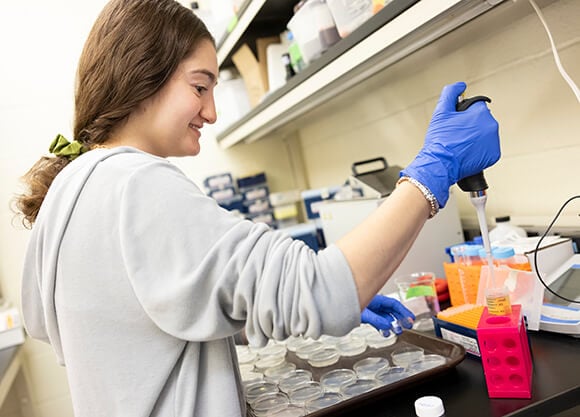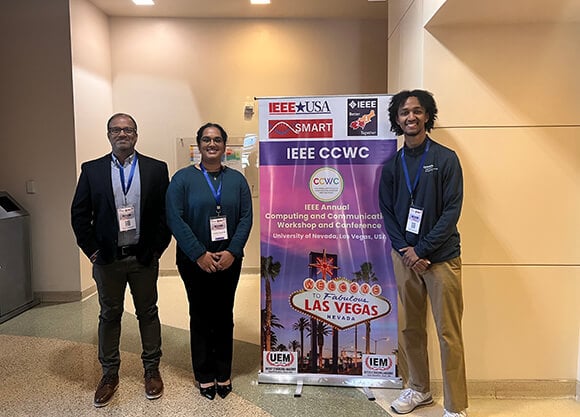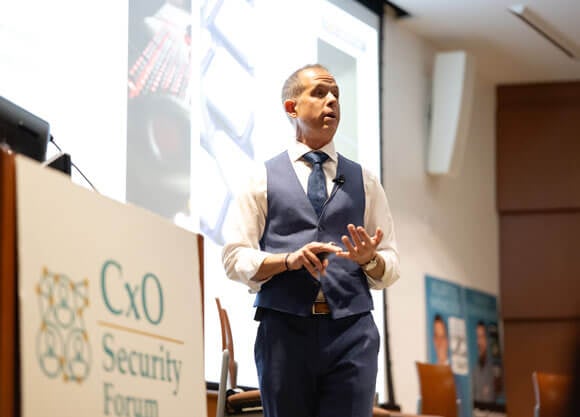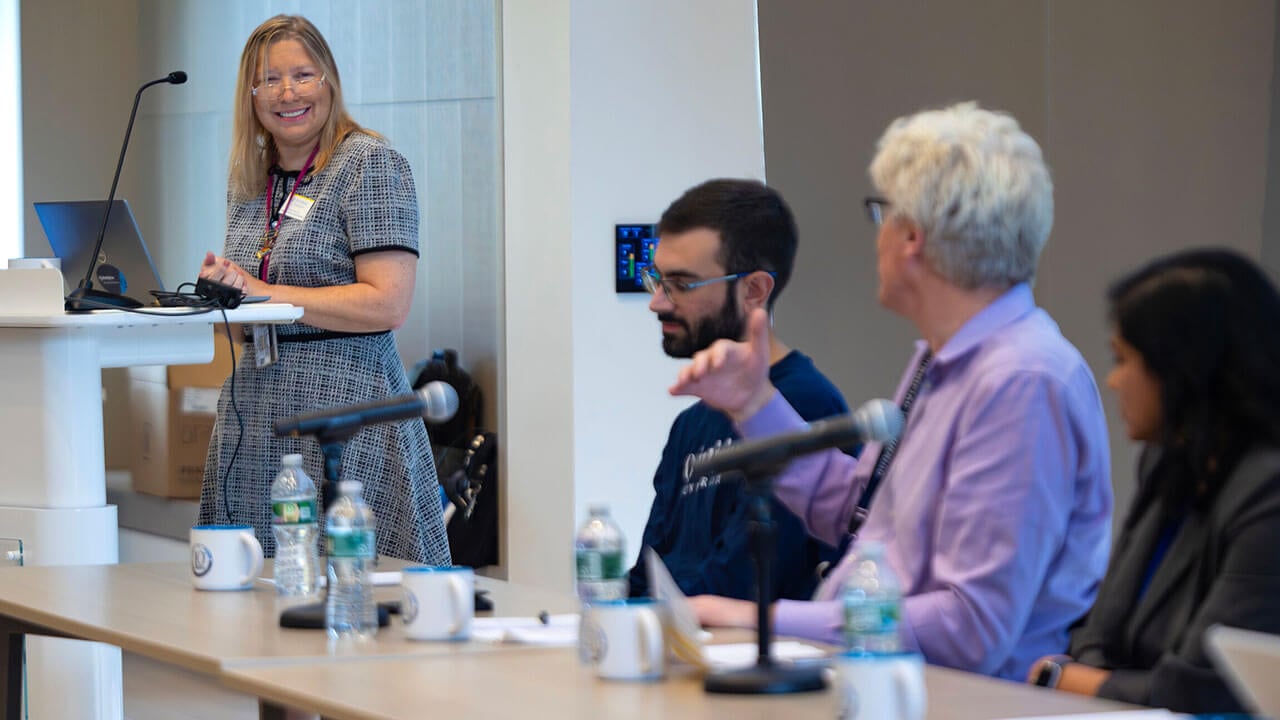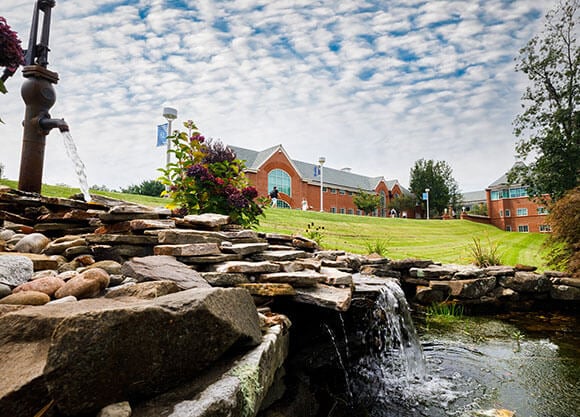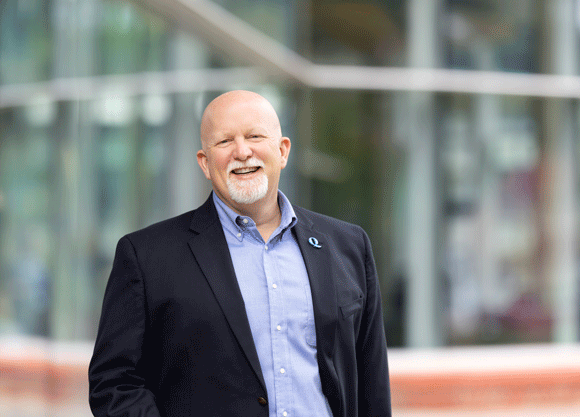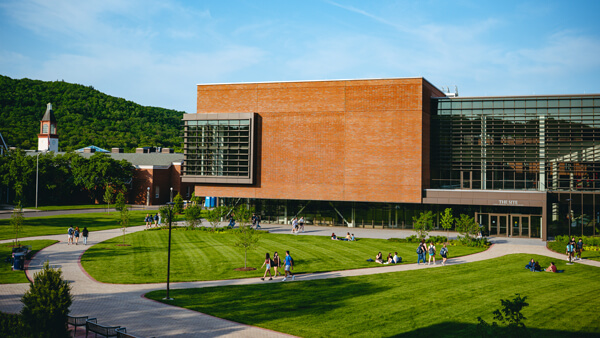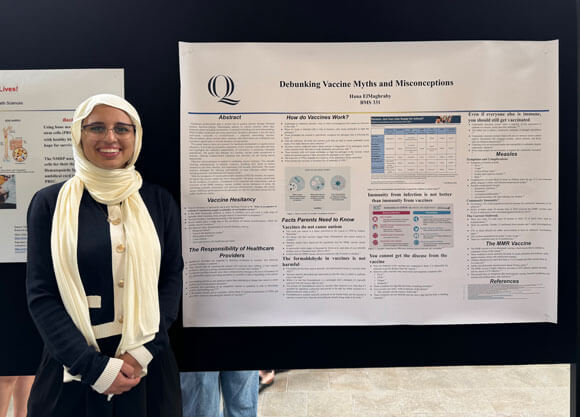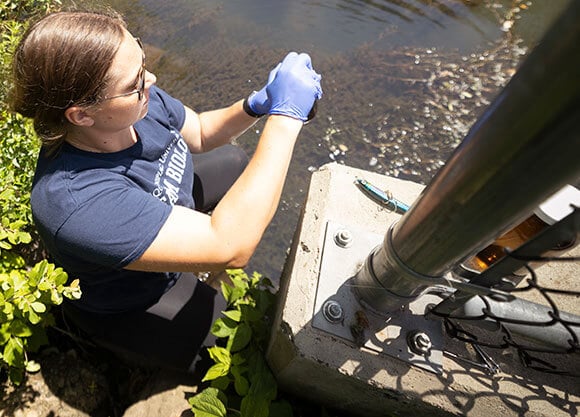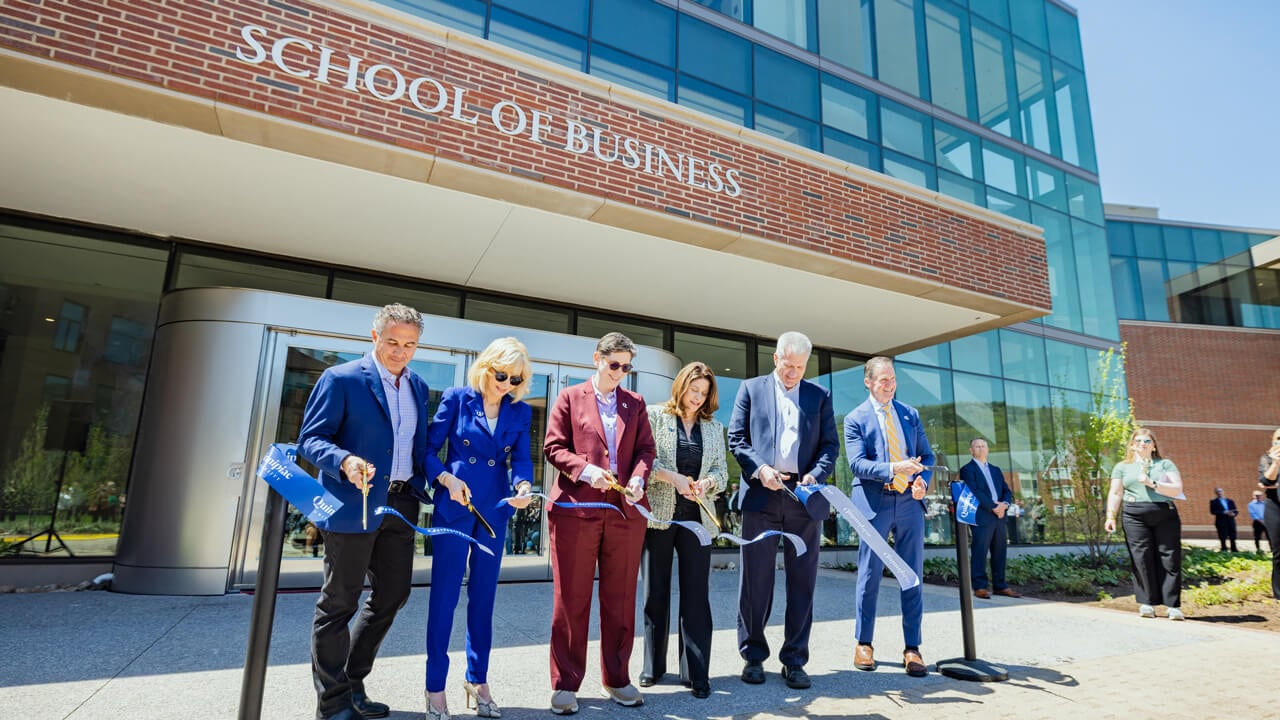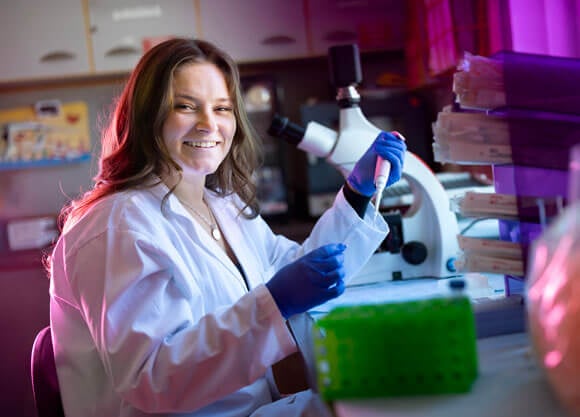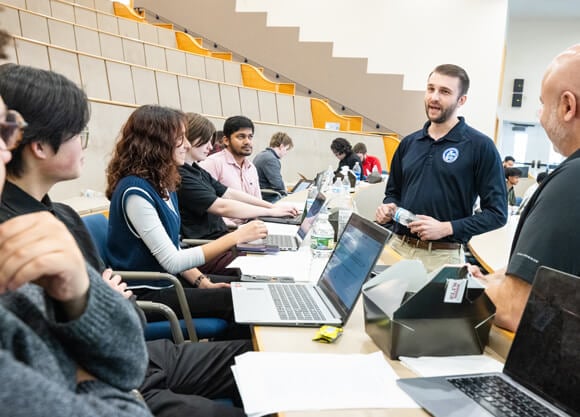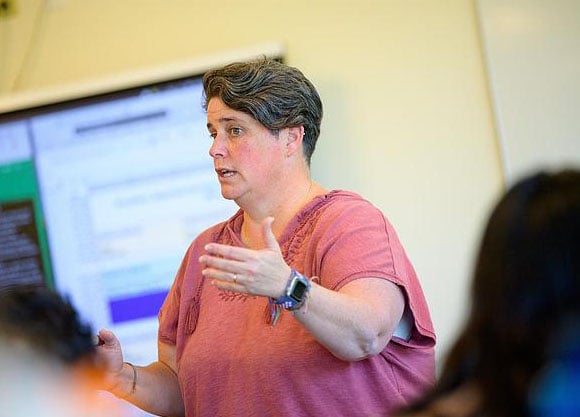
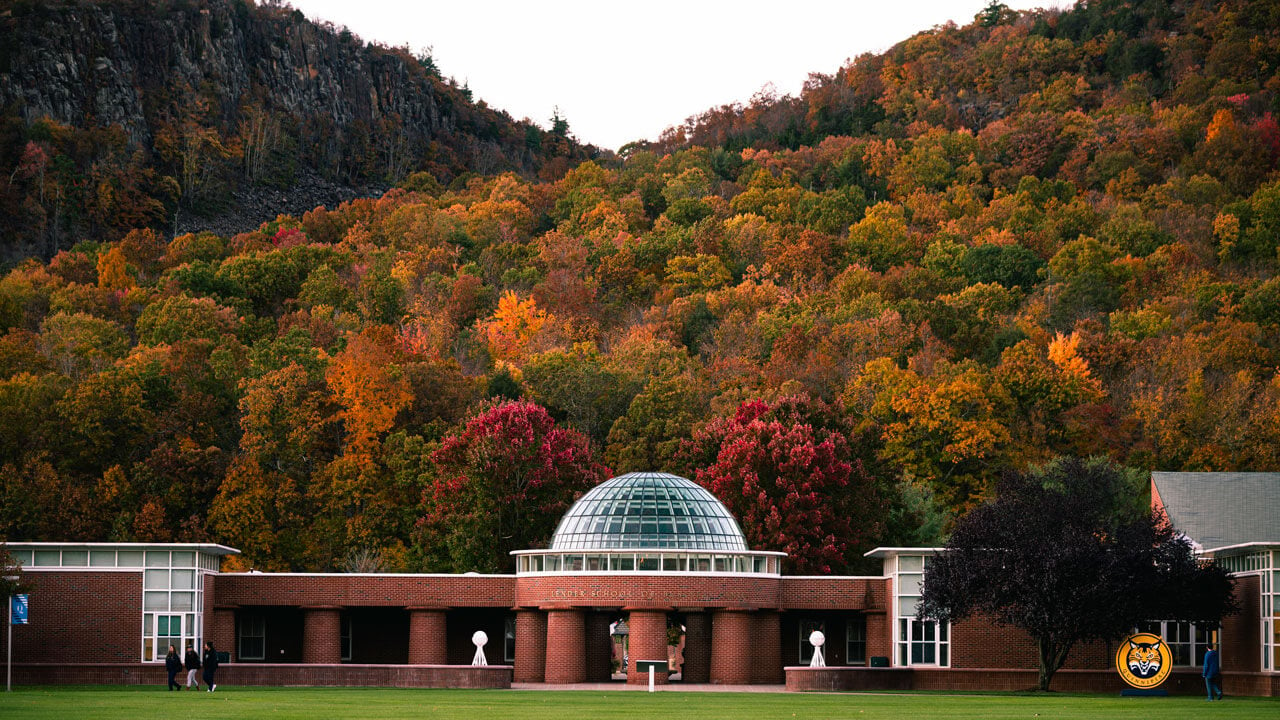
Courtney McGinnis, professor of biology and medical sciences, and Rebekah Stein, assistant professor of environmental science, have conducted extensive research around the campuses to better understand the lack of color.
“The foliage is likely less vibrant compared to this exact week 10 years ago because seasonal senescence is happening later and later on average due to warmer falls,” said Stein. “It is also likely that things appear drabber because it's been such a rainy summer and fall. The rainy summer may have impacted photosynthetic capacity during the summer and stressed the trees. Also, waterlogged trees create a breeding ground for fungus, which dulls those vibrant colors.”
Not only has the excessive rainfall affected the staple of bright fall trees throughout Southern New England, so has climate change. Stein has found that the warm, growing season has been prolonged, resulting in a delayed autumn season. Many of the trees have undergone unusual stress causing them to reroute nutrients due to excessive heat waves or precipitation, she shared.
“With climate change, there are pests that can now live in the Northeast, or since our winters weren’t as cold last year, live throughout that year,” said McGinnis. “The cold is actually pretty important to kill off pests and when that doesn’t happen our trees are more vulnerable.”
She added that the rainy weather decreased the anthocyanin production, which results in less sugar production and an overall decrease in the brightness.
Both professors administer research on different areas near the university’s campuses.
McGinnis has focused on water samples in the Quinnipiac River for almost a decade and Stein is currently working on discovering pollinator habits, as well as ecosystem dynamics on Sleeping Giant. There is also further research to be conducted to completely uncover the cause of our damaged trees.
“I think it's really important that we start talking about ‘photorespiration’ which is the process associated with the photosynthetic enzyme's proclivity for binding with oxygen instead of CO₂ under various stressful conditions,” said Stein. “This actually releases CO₂ rather than gaseous oxygen and impacts the way that plants form tissues. As trees become more and more stressed by temperature, water excess or lack of availability, and other factors, we don't know what will happen to photorespiration rates.”
Stein and McGinnis are both dedicated to protecting the campus we call home and believe it is important to take part in even the smallest acts to contribute to keeping the surrounding environment clean and safe.
The university has also recently earned the designation of a Tree Campus for its dedication to supporting and nurturing the environment.
In this Article
Read This Next


Honors students present research on community engagement, social justice at national conference in California Opens in a new tab or window.
Read the full story Honors students present research on community engagement, social justice at national conference in California Opens in a new tab or window.
Innovative young minds celebrated as Quinnipiac hosts Lt. Governor’s 6th Annual Computing Challenge Recognition Ceremony Opens in a new tab or window.
Read the full story Innovative young minds celebrated as Quinnipiac hosts Lt. Governor’s 6th Annual Computing Challenge Recognition Ceremony Opens in a new tab or window.Stay in the Loop
Quinnipiac Today is your source for what's happening throughout #BobcatNation. Sign up for our weekly email newsletter to be among the first to know about news, events and members of our Bobcat family who are making a positive difference in our world.
Sign Up Now